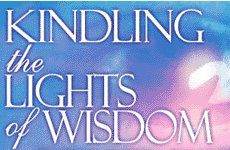 Vampire Weekend's Surprising Jewish Stories
Vampire Weekend's Surprising Jewish Stories


5 min read
The danger of religion does not lie in religious fervor, but in religious uncertainty.
The fight of the Jews against the Greek more than 2,000 years ago is repeated today
When I was growing up, my family had a Chanukah bush beside the fireplace every December. It was decorated with hanging balls and candy canes, with tinsel and twinkling lights, with a star on top and even a nativity scene.
"It takes a keen eye to tell a Chanukah bush from a Christmas tree," I used to joke with my college roommate.
There's no such thing as a Chanukah bush, of course. But that didn't matter to me: I didn't know any more about Chanukah than I knew about Christmas. All that mattered was the ring of presents that steadily grew wider as the end of the month grew nearer.
And on December 25, I would wake up early and race downstairs, impatiently clomping around until my parents joined me in the excitement of opening my new playthings. Then we headed to my cousins' home for the annual family get-together, to sit around their living room eating turkey and stuffing and ham and glazed carrots.
A "Happy Chanukah" garland hung in the fireplace, even if Chanukah was long over.
I did know that the holiday had something to do with a miraculous burning of the oil (what oil?) and with a battle against the Greeks (or was it the Syrians?) But in a home of religious/cultural ambivalence, any ideological significance of Chanukah gave way to holiday gift-giving and the fun of two weeks' vacation from school.
It would be many years before I learned that in the days of Judah the Maccabee and the Hasmoneans ― over 2,000 years ago ― the waters of cultural ambivalence had risen so high that they threatened to inundate Jewish society. Although the Greeks posed a real danger to the sovereign identity of the Jewish nation, the Hellenist Jews and their desire for a Greek version of Judaism imperiled the integrity of Jewish tradition.
The Jews had survived attempts by the Babylonians and the Persians to destroy them physically and spiritually, but never before had a movement from within sought to redefine the beliefs and practices that had shaped the Jewish national character since the time of Abraham.
Ultimately, the Hasmoneans routed the Greeks, and the Jewish sages discredited the Hellenists. The priests rededicated the Temple, and the miracle of the oil heralded the reconciliation of the Jewish people with their Creator.
A Victory of Tradition
On Chanukah, therefore, we celebrate the victory of traditional Jewish culture over both the forces without that strove to overturn it and the forces within that wished to dilute it.
But the echo of Chanukah reverberates not only for the Jews. By contemporary standards, the philosophical struggles of the Hasmoneans seem straightforward and unambiguous. But today’s religious and cultural identity issues defy simple definition and eludes easy understanding.
The world over ― and not just among the Jews ― ideological sects and denominations lay claim to spiritual authenticity, even as they attack one another with charges of either fundamentalism or revisionism. Separatist movements labor to set themselves apart while multi-culturalists demand a coming together. Terrorism, ethnic cleansing and hate crimes dominate the news and make us wonder if the utter abandonment of culture and religion might not be a prettier alternative to what we are facing.
The danger of religion, however, does not lie in religious conviction nor even in religious fervor, but in religious uncertainty. Had the ancient Greeks not sensed their beliefs were threatened by Jewish monotheism, they would not have fought so desperately to crush Judaism.
And had the Hellenist Jews felt more secure in the traditions of their ancestors, they would never have contemplated compromising their heritage by pursuing a synthesis with Greek culture.
The one who knows what he believes and why he believes is both immune to the attraction of foreign culture and tolerant of sincere foreign belief. He will be neither bullied nor seduced by the philosophies of others because he is secure in his own, and he will be able to live in harmony with others and work together for the common welfare without sacrificing his ideals or compromising his values.
Holy Wars
Sadly, much blood has been spilled in the name of the Almighty ― very little of it with His approval. But a rational belief in a benevolent deity, practiced with conviction and consistency, is the surest means of navigating the ever-changing landscape of social fads and relative values, of living a life of integrity amid a society too often willing to sell integrity for a profit, and of following the paths of peace through a world that too often seems addicted to war.
For more than 2,000 years, the lights of Chanukah have burned as a symbol of spiritual wisdom ― the wisdom to know oneself and one's Creator, to stand secure in the knowledge of one's own culture and one's own beliefs, to respect the truth and to recognize truth in its many forms.
